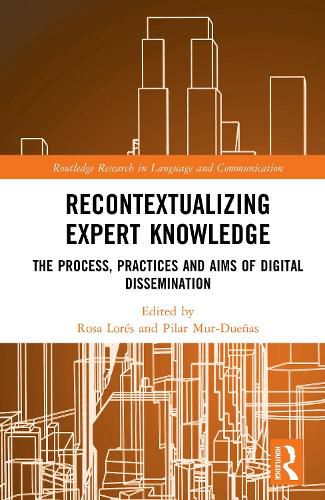Readings Newsletter
Become a Readings Member to make your shopping experience even easier.
Sign in or sign up for free!
You’re not far away from qualifying for FREE standard shipping within Australia
You’ve qualified for FREE standard shipping within Australia
The cart is loading…






This collection explores how expert knowledge is transformed and communicated in digital contexts.
This volume examines how digital media impacts the process of recontextualization, understood as the way by which expert knowledge is made more accessible to multiple audiences through varied discursive, pragmatic, and multimodal strategies. Adopting varied theoretical and methodological approaches, the chapters examine the multifaceted processes of recontextualization, where academic information is adapted for broader public audiences, often navigating the tension between scholarly rigor and public understanding. Part 1 examines the way academics adapt expert knowledge for diverse audiences through platforms like The Conversation, TED Talks, and Science Media Centre. Part 2 explores knowledge transformation by mediators across social media, science writing, press releases, and destination marketing. Part 3 addresses professional communication practices in climate research and sensitive topics (i.e., extremism). The epilogue discusses balancing simplification with academic integrity in expert knowledge dissemination.
This book will be of interest to students and scholars in discourse analysis, pragmatics, English for Specific Purposes, corpus linguistics, and science communication.
$9.00 standard shipping within Australia
FREE standard shipping within Australia for orders over $100.00
Express & International shipping calculated at checkout
Stock availability can be subject to change without notice. We recommend calling the shop or contacting our online team to check availability of low stock items. Please see our Shopping Online page for more details.
This collection explores how expert knowledge is transformed and communicated in digital contexts.
This volume examines how digital media impacts the process of recontextualization, understood as the way by which expert knowledge is made more accessible to multiple audiences through varied discursive, pragmatic, and multimodal strategies. Adopting varied theoretical and methodological approaches, the chapters examine the multifaceted processes of recontextualization, where academic information is adapted for broader public audiences, often navigating the tension between scholarly rigor and public understanding. Part 1 examines the way academics adapt expert knowledge for diverse audiences through platforms like The Conversation, TED Talks, and Science Media Centre. Part 2 explores knowledge transformation by mediators across social media, science writing, press releases, and destination marketing. Part 3 addresses professional communication practices in climate research and sensitive topics (i.e., extremism). The epilogue discusses balancing simplification with academic integrity in expert knowledge dissemination.
This book will be of interest to students and scholars in discourse analysis, pragmatics, English for Specific Purposes, corpus linguistics, and science communication.